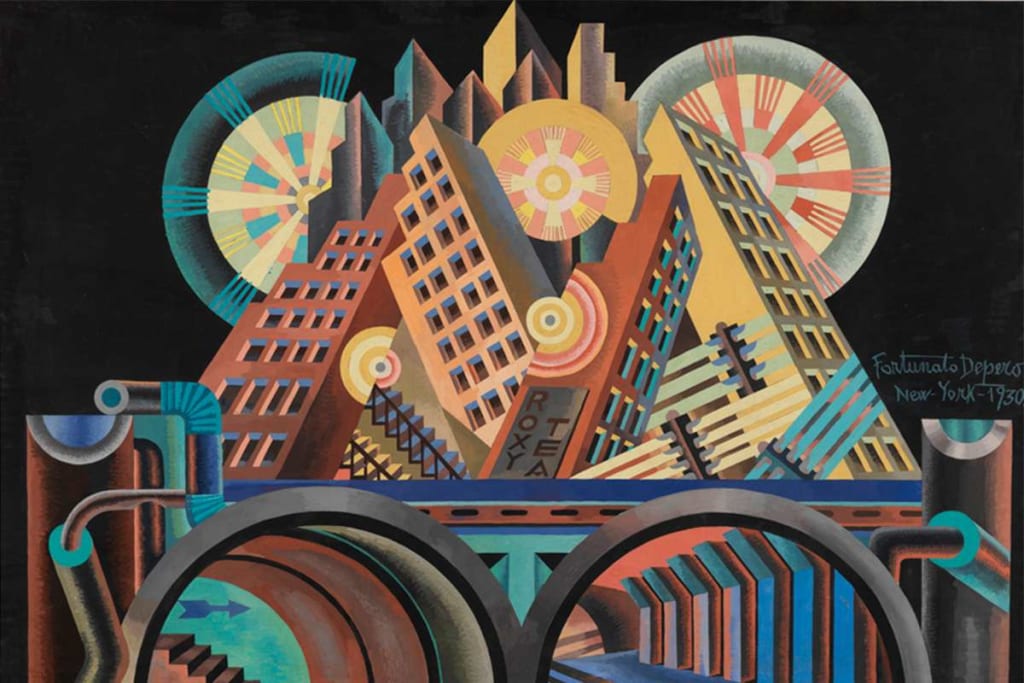Embracing the Future: A Journey into Futurism and the Path Ahead
Exploring the Evolution of Futurism and Its Impact on Humanity's Destiny

Since the dawn of civilization, humans have looked ahead with curiosity and anticipation, wondering what the future holds. This innate desire to understand and shape the world to come has given rise to a fascinating field of study known as Futurism. As we stand on the precipice of a new era, with technological advancements accelerating at unprecedented rates, it becomes more crucial than ever to explore the intricacies of Futurism and its potential implications for humanity. This article delves into the concept of Futurism, its historical evolution, and how it continues to shape our perceptions of what lies ahead.
Defining Futurism: Peering into the Unknown
Futurism, at its core, is the study of the future, encompassing various disciplines such as technology, science, sociology, economics, and philosophy. It goes beyond mere speculation, seeking to analyze current trends and project them into potential future scenarios. Futurists draw on data-driven insights, emerging technologies, and social patterns to paint a vivid picture of the possibilities that await us.
Historical Roots of Futurism
The origins of Futurism can be traced back to ancient civilizations, where prophecies, divination, and astrology were employed to anticipate what the future might bring. However, it was in the early 20th century that Futurism as a formal intellectual movement took shape.
In the realm of art, Italian Futurism emerged as a radical avant-garde movement in the early 1900s, celebrating modernity, speed, and the industrial age. Visionaries like Filippo Tommaso Marinetti exalted the machine age and the dynamism of urban life, inspiring artists to capture the essence of progress in their works.
Parallel to the artistic movement, Futurism as a philosophical and sociological concept began to gain momentum. Thinkers like H.G. Wells, J.D. Bernal, and Bertrand Russell explored future-oriented ideas, discussing the possibilities of space travel, the role of technology in society, and the potential consequences of scientific advancements.
The Technological Revolution: Catalyst for Futurism
As the 20th century progressed, the world witnessed unprecedented technological advancements. The proliferation of electricity, the invention of the telephone, and the development of the internet were just a few milestones that revolutionized human existence. These breakthroughs not only transformed societies but also fueled the imaginations of futurists worldwide.
The Space Age further propelled Futurism into the mainstream. The successful moon landing in 1969 by Apollo 11 not only showcased humanity's capability for space exploration but also ignited dreams of interplanetary travel and colonization of other celestial bodies.
The Digital Age and Beyond: Futurism in the Modern Era
Fast forward to the present day, and we find ourselves at the forefront of the Digital Age, a time of unparalleled technological marvels. Artificial Intelligence (AI), quantum computing, biotechnology, and renewable energy are reshaping our world in ways that were once deemed pure science fiction.
Futurism has seamlessly woven itself into modern culture, manifesting in literature, movies, and popular media. Dystopian narratives cautioning against the misuse of technology, as seen in George Orwell's "1984" and Aldous Huxley's "Brave New World," reflect society's apprehensions about a future dominated by surveillance and loss of individuality.
Conversely, optimistic portrayals of the future, like Gene Roddenberry's "Star Trek" series, inspire hope for a utopian world where technology serves humanity's greater good. These cultural expressions not only entertain but also play a crucial role in shaping public perception of the future.
Futurism in Practice: Methodologies and Techniques
Futurists employ a wide array of methodologies to study and forecast potential future scenarios. Among these are:
1. Environmental Scanning: Futurists extensively analyze current trends, technological innovations, and social shifts to identify potential drivers of change.
2. Scenario Planning: By developing multiple scenarios based on different variables and assumptions, futurists can better understand the range of possibilities that may unfold.
3. Delphi Method: This technique involves gathering input from a diverse group of experts and stakeholders to build a consensus on probable future developments.
4. Trend Analysis: Futurists examine historical data and identify patterns to project how current trends might evolve over time.
5. Wild Cards: Futurists consider low-probability, high-impact events, known as wild cards, that could dramatically alter the course of the future.
Ethical and Social Implications of Futurism
While Futurism holds great promise in guiding policy decisions and preparing us for forthcoming challenges, it also brings forth ethical and social concerns. As we embrace the possibilities of the future, we must grapple with questions related to AI ethics, genetic engineering, job displacement due to automation, and the implications of space colonization.
Moreover, the potential for a technological divide between the privileged and the underprivileged raises concerns about social justice in a futuristic world. Striking the right balance between innovation and ethical considerations will be imperative to ensure a sustainable and equitable future.
Conclusion:
Futurism is not a crystal ball that can predict the future with certainty, but rather a compass that helps us navigate the uncharted waters of tomorrow. Throughout history, futurists have envisioned worlds that once seemed unimaginable, only to witness them become reality. As we stand at the crossroads of unprecedented technological advancements, we must approach the future with both enthusiasm and caution.
By leveraging the wisdom of futurism and combining it with our collective human values, we can steer the course of progress toward a future that benefits all of humanity. The journey into futurism is an ever-evolving one, and as long as we remain curious, compassionate, and collaborative, we can shape a destiny that fulfills our aspirations and dreams.






Comments
There are no comments for this story
Be the first to respond and start the conversation.